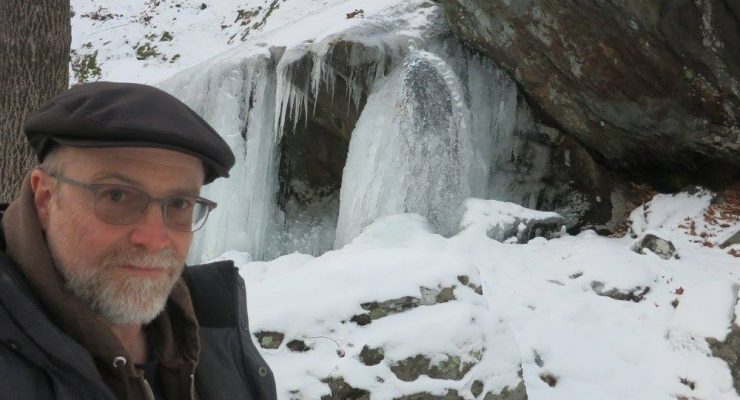I can still recall that 2016 election night gathering filled with sociology faculty and graduate students from across Rhode Island. Nobody, early in the evening, expected Donald Trump to beat Hillary Rodham Clinton to become the president of the United States of America in 2017. But he did. People cried. It was not a Trump-friendly party. Even in that moment, however, his victory made me happy about my own career choice.
His triumph reminded me just how critical sociology is not only for our collective intellectual distinction but also for our common good, especially when crisis pervades our public sensibility. With his victory, I began to rethink how I would teach introductory sociology in the spring of 2017. #TrumpSociology, as I came to call it on what was then still called Twitter, would animate the course.
That would not be the first time when a US president and associated global transformations would define how I engaged what Michael Burawoy has called sociologists’ first public. I have, apparently, been treating my introductory classes as expressions of public sociology for nearly 40 years. But it’s only been with this essay’s invitation that I came to think seriously, reflexively, about how my expressions of public sociology have changed. My students and I have become increasingly critical, if also with greater humility, about what is to be done.
During 1985-86, in my first year of full-time teaching as a visiting assistant professor at the University of South Carolina, I taught introductory sociology in a more conventional fashion, juxtaposing Human Societies, whose lead author was my senior dissertation advisor, Gerhard Lenski, with a short volume by Anthony Giddens on sociology (it had a most clever subtitle: a “brief but critical introduction”). I explored sociology as a discipline that was simultaneously scientific and critical, even if those accents were variably evident among sociologists. But I was not thinking much about my students in that address; I focused more on those professors from whom I had learned.
I arrived at the University of Michigan as an assistant professor in 1986. I remember the shock on my senior colleagues’ faces when I said that I would be happy to teach two introductory level courses in my first term. I frankly loved the chance of hooking more students on sociology. On top of that, not only did I have lectures already prepared from the previous year, but I also had no stage fright after having cultivated a more activist sense of self through speaking at demonstrations in Chapel Hill.
While my introductory sociology courses continued to explore the science/critical articulation, I took advantage of an available “social problems” course and moved it in a decidedly public direction. Social problems, of course, lend themselves to that emphasis given their dependence on the discursive construction of issues as problems. But I thought it appropriate at the time to make it even more critical by asking whether the political culture inspired by the president at the time, something commonly called Reaganism, was itself a social problem.
By asking the question I was inviting my first public to figure out, from an analytical distance, what would make Reaganism a problem — whether or not they themselves were Reagan Republicans or Mondale Democrats. Because I relied on their helping me figure out that question’s address, they felt very much part of the analytical process. And because I asked the question without presumption of their answer I could not be called simply political. Of course, that question is political in the bigger sense. It asks our first public to think about how broader publics engage questions of power, knowledge and justice in global social change.
Like other departments, ours, at Brown University, has been trying to encourage our senior faculty to teach introductory sociology. Just as I was at the University of Michigan (albeit when I was a much younger professor), I was an easy mark. But now I’ve taught it almost annually since 2017. I have thus taught it in these years after Trump’s (challenging) exit from the Oval Office, but those first years engaging #TrumpSociology demanded quite an investment in my own learning.
I was no specialist on American electoral politics, I told my students, but I had a sociological imagination that was kicked into high gear by his election. I’ve asked them to cultivate their own. Why did Trump win? What contradictions did his election embody? What consequences could we imagine, document, explain, from his term in office? Alas, my own imagination did not consider an attempted insurrection to overturn the results of the election, but it did consider violence as a possibility.
We still covered all those foundational areas in introductory sociology – from demography to cultural sociology – but their engagement found plenty to explore in the Trump transformed public sphere, from the politicization of the census to the meaning of the red MAGA cap to the fate of truth and truthfulness.
Trump lost in 2020, but the public consequences associated with his movement have far from disappeared. Understanding, for example, the dynamics of political polarization draws students into sociology without having to name where one stands in any contest.
Sociology thrives in times of crisis. But it will thrive only if sociology addresses crisis and figures the discipline’s place among the publics who face increasingly existential anxiety in epoch end. Asking our first public to develop their intellectual responsibility in partnership with those publics enables our students to find meaning in their learning. It helps us to do the same.
Michael D. Kennedy is a professor of sociology and international and public affairs at Brown University. Professor Kennedy explores the relationship between knowledge practices and global transformations, with particular regional expertise in Europe and Eurasia. His work on global and transnational sociology focuses now on how various articulations of difference and solidarity travel.


Comments